Another day, another internet search. So many things to consider now that you have a baby. Everything seems dangerous – even water. So, the question must have popped into your head by now. Can babies drink distilled water? In short, the answer’s yes.
However, why is it safe to drink distilled water? Are there any alternatives, better ones, maybe? What makes water unsafe for babies in the first place? With so many questions that seem to branch endlessly, it’s best that you stick around as we explore the topic.
What Makes Distilled Water Safe?
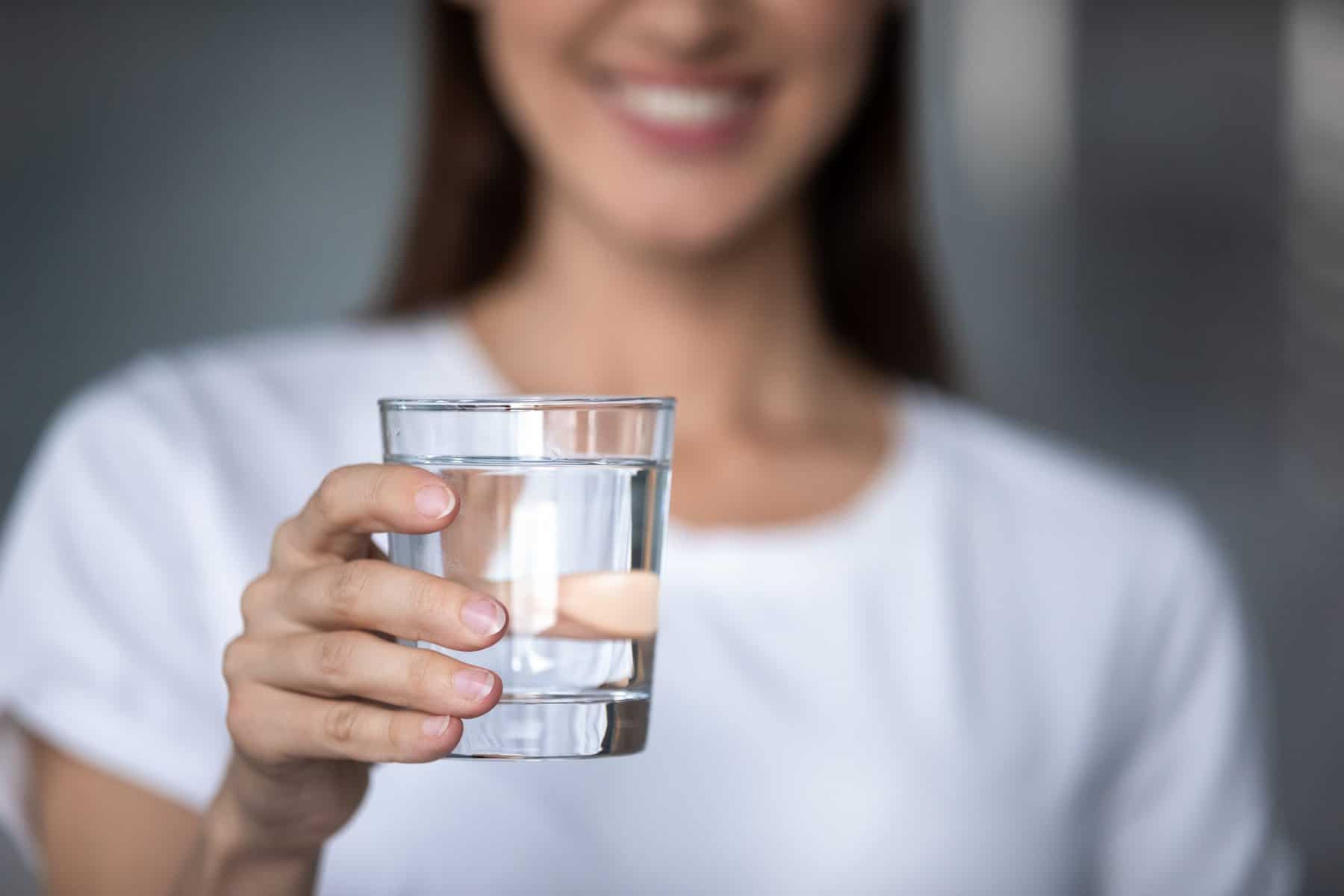
Distilled water is perfectly safe and widely recommended to use in a baby formula.
While the process of making distilled water may eliminate essential salts and minerals, the baby formula makes up for it. Therefore, distilled water is clean and free from various contaminants, making it an ideal option for parents to use in a baby formula.
What about the process behind it? How is distilled water made?
What actually makes distilled water safe for babies to drink?
Basically, distilled water implies water that has been heated to the point where it turns into vapor. As the vapor condenses back to water, it eliminates minerals and salts. Not only is distilled water the safest option for your baby, but for your entire family, as well.
The reason why it’s preferred over tap water is because it eliminates risk.
Tap water can be safe to a certain degree, too, but it contains contaminants.
While bacteria or contaminants may not pose a serious threat for adults, it can be fairly dangerous for your baby. The risks are low, but why take any risks at all? Parents worry. Give yourself some peace of mind because babies can safely drink distilled water.
After all, your baby gets all the minerals they need from a baby formula.
Minimize any unnecessary risks and prioritize safety by choosing distilled water.
What About Purified Water?
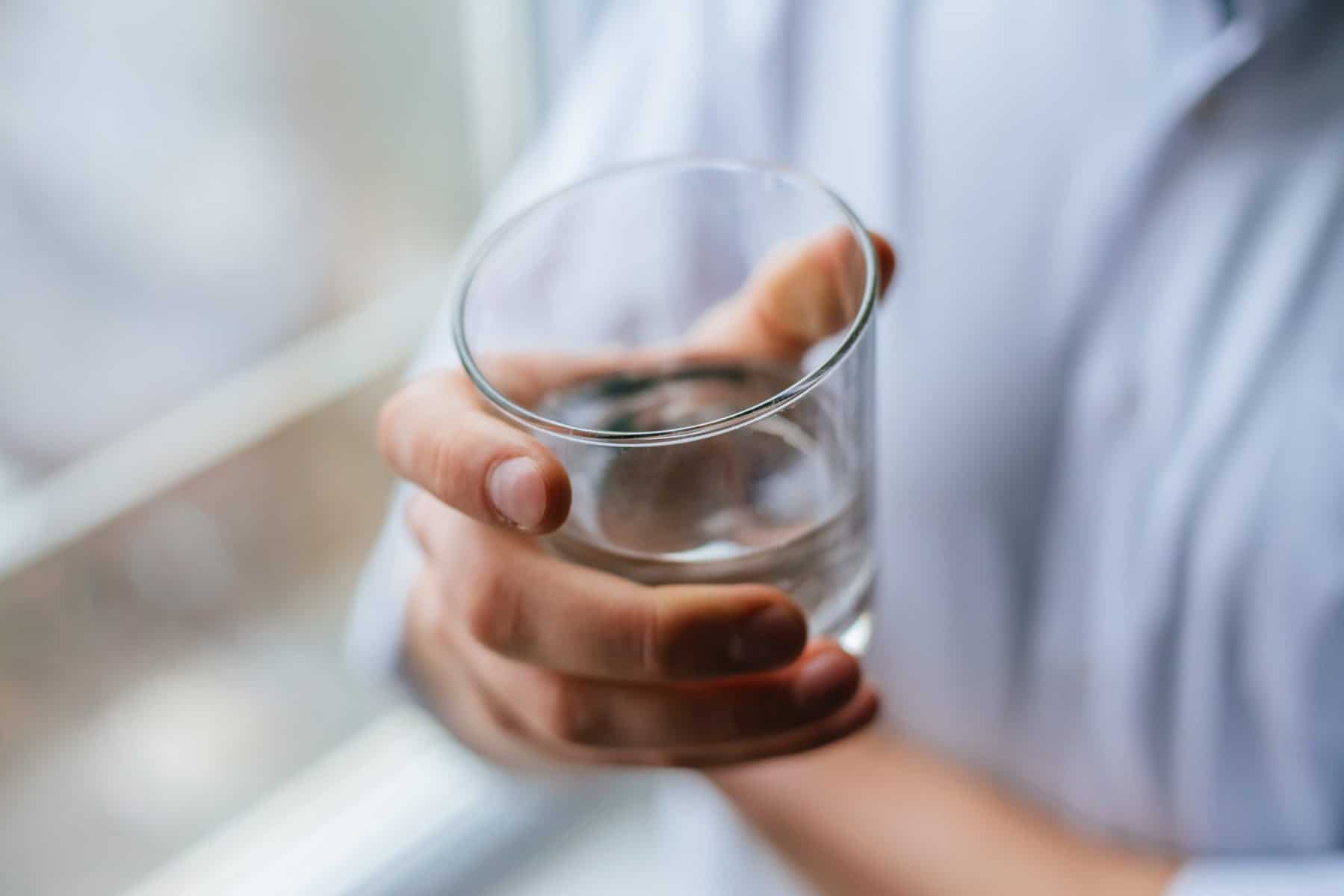
Now that we know that distilled water is perfectly safe for your baby, what about purified water? Distilled water is safest, but purified water comes as a close second. How come? Well, while the process of purification decontaminates, it doesn’t remove minerals.
Ideally, your baby gets their minerals from a baby formula, while the water you use eliminates both minerals and any possible risks in the form of contaminants.
As your baby ages, you can shift to purified water, too.
Keep in mind that all of these options vary from place to place. In certain areas, it’s perfectly fine to use tap water with a filter. As a parent, it’s easy to get caught up in other people’s opinions, especially if it’s your first baby and you’re trying to find your way.
Learn to trust yourself and the informed decisions that you make.
Purified water can be used for a baby formula, just like distilled water. Nevertheless, if you’re really trying to prioritize your baby’s safety, nothing can top distilled water.
However, we advise not overstressing yourself too much about water. By consulting with your pediatrician you can find out whether or not it’s safe to drink tap water in your area, and they can provide clear instructions in regards to distilled and purified water.
Can Babies Drink Tap Water?
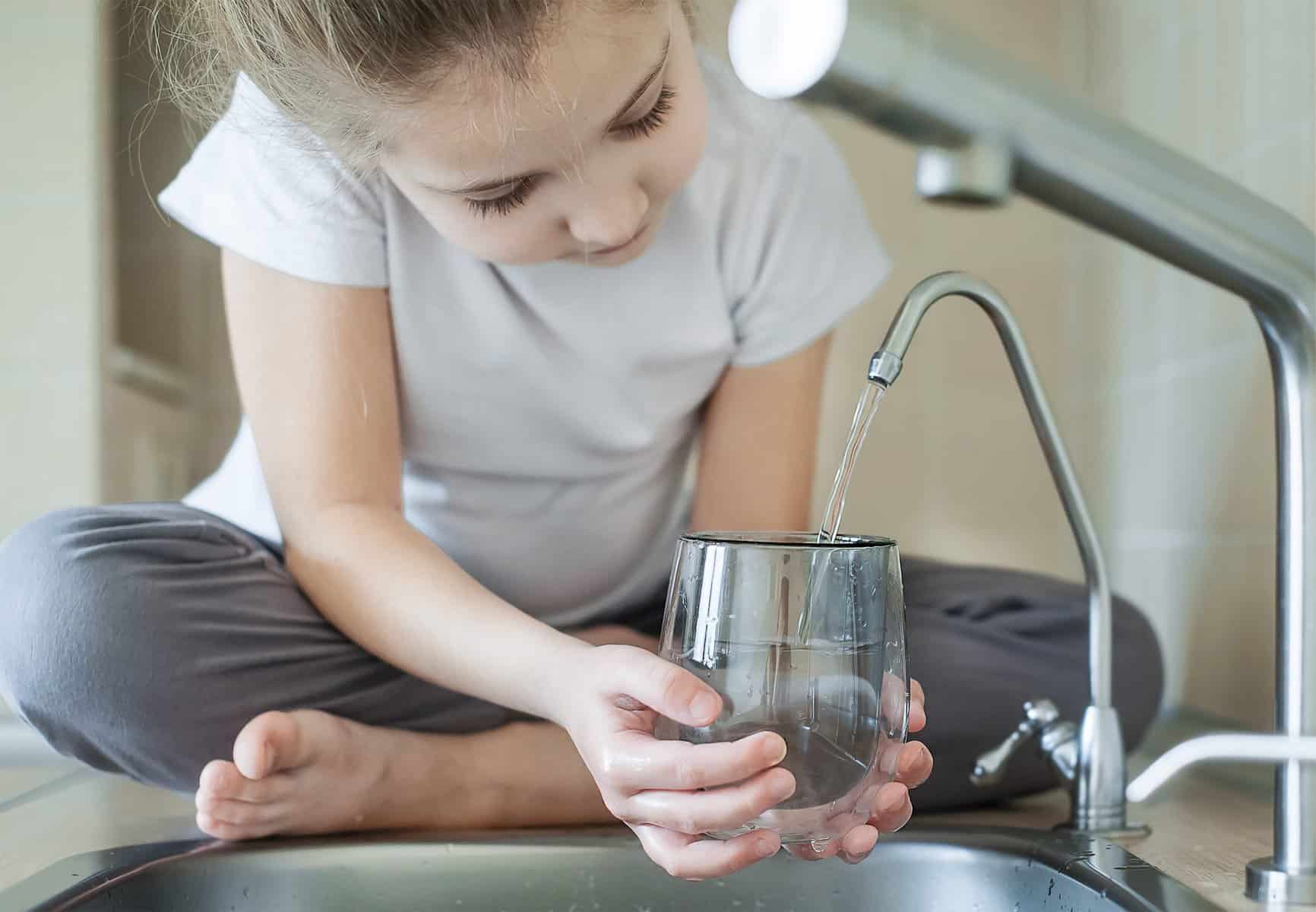
It is not safe for babies to drink water straight from the tap.
No matter the water quality in your area, giving your baby water straight from the tap poses many risks. Why? Well, since the water is contaminated and not sterile, it can endanger your baby’s health. As such, you have to boil tap water and cool it.
When consumed in excess, fluoride can cause dental fluorosis during the period when your baby is growing their teeth. However, babies older than six months can benefit from fluoride, but that’s an entirely different topic to explore – best saved for another day.
Nevertheless, moderate exposure to fluoride helps prevent tooth decay.
So, can babies drink tap water, as opposed to distilled water? Of course, so long as you boil and cool it first. Generally it’s also advised to use a water filter, as well.
When your baby turns six months, tap water becomes much more safer, especially if tap water is generally considered safe to drink in your area. After six months, it gets safer to give your baby water straight from the tap, as opposed to distiller or purified water.
As always, when faced with risk uncertainty, consult with a pediatrician.
So, Which Water Is Best for a Baby Formula?
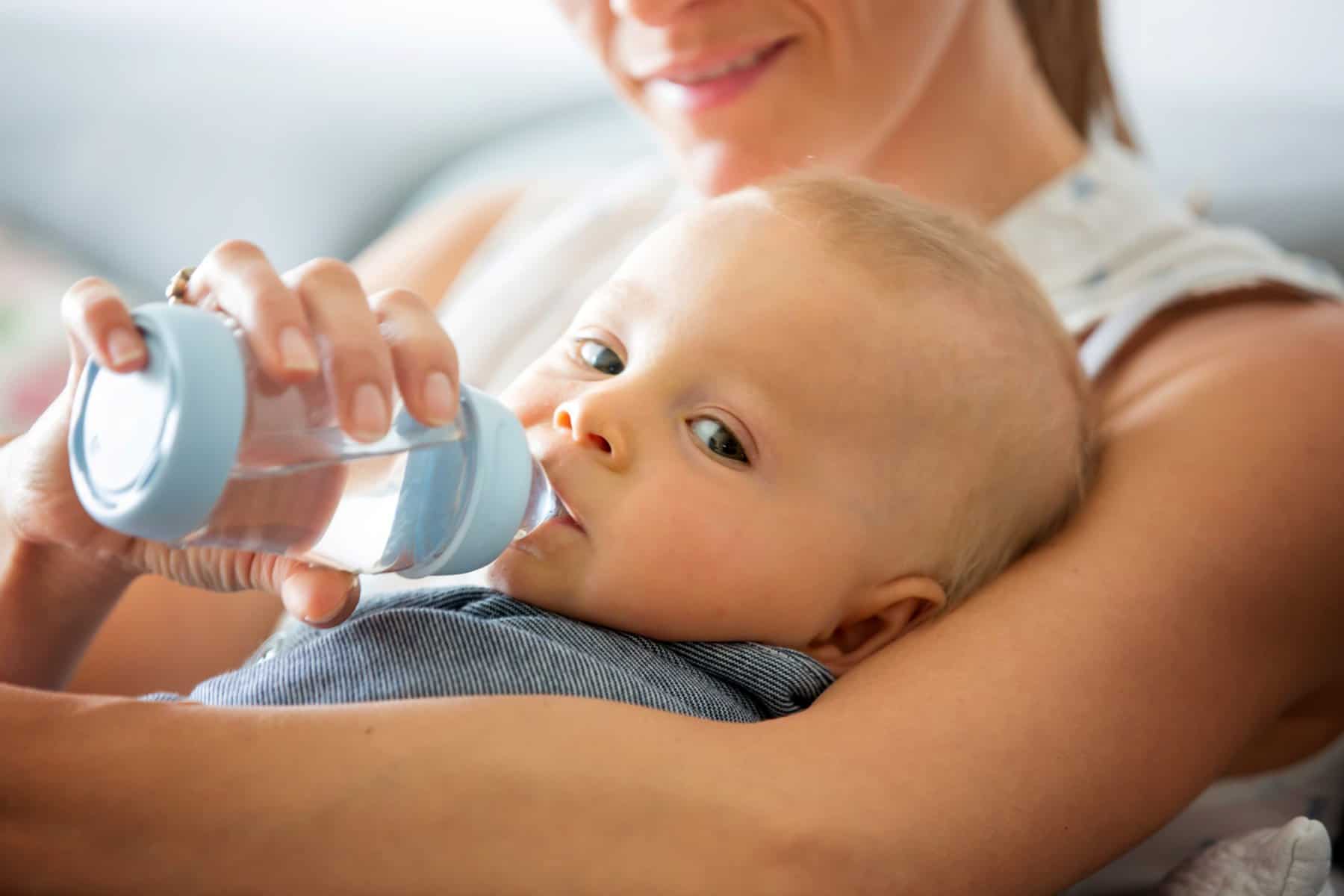
Now that we know what babies can safely drink – which water is the best to use?
Choosing the right kind of baby formula can be stressful in and of itself. Now you have to take water into account, as well. Everything is new and for first time parents it gets especially confusing. We’re here to help you by making the process a little bit easier.
In regards as to what baby formula to pick, talk with your pediatrician.
Even though every baby formula meets nutritional standards, ingredients differ. Not all babies are breastfed, so you want to make sure that you use the safest and cleanest water possible when mixing it with a baby formula. Naturally, that implies distilled water.
Unlike tap, bottled, purified, or alkaline water, distilled water is safest for babies.
With newborn babies, you want to be extremely careful. Also, if your baby has a condition of sorts, for example a weakened immune system, you want to prioritize their health and well-being by choosing distilled water for your baby formula as a responsible parent.
How Much Water Should Your Baby Drink?
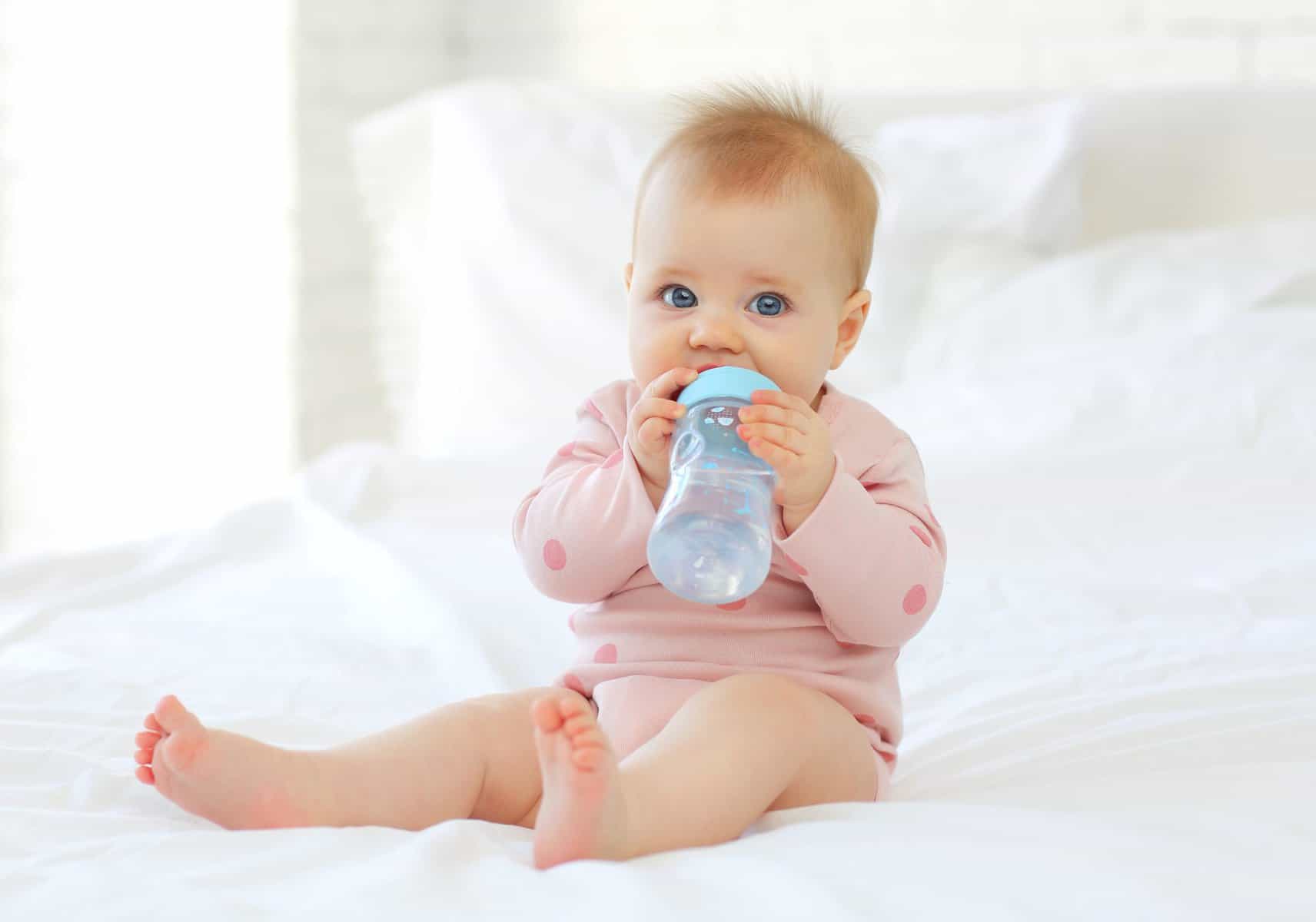
All the water a newborn baby needs, they get from breastfeeding or baby formulas.
However, after the first six months, your baby can start drinking water straight from the tap – if it’s safe to drink in your area. The reason why your baby can start drinking water is because at around six months your baby is going to start eating solid foods, as well.
How much water should you give them?
Make sure to start with very small doses of water. At the start of the transition, you should only give your baby a few milliliters of water a day. Gradually, as you introduce your baby to solid foods, they are going to do less breastfeeding and more water consumption.
With every new month and milestone, your baby’s diet changes. Stay flexible.
Above all else, never hesitate to consult with your pediatrician – they know best.
Can Babies Drink Bottled Water?
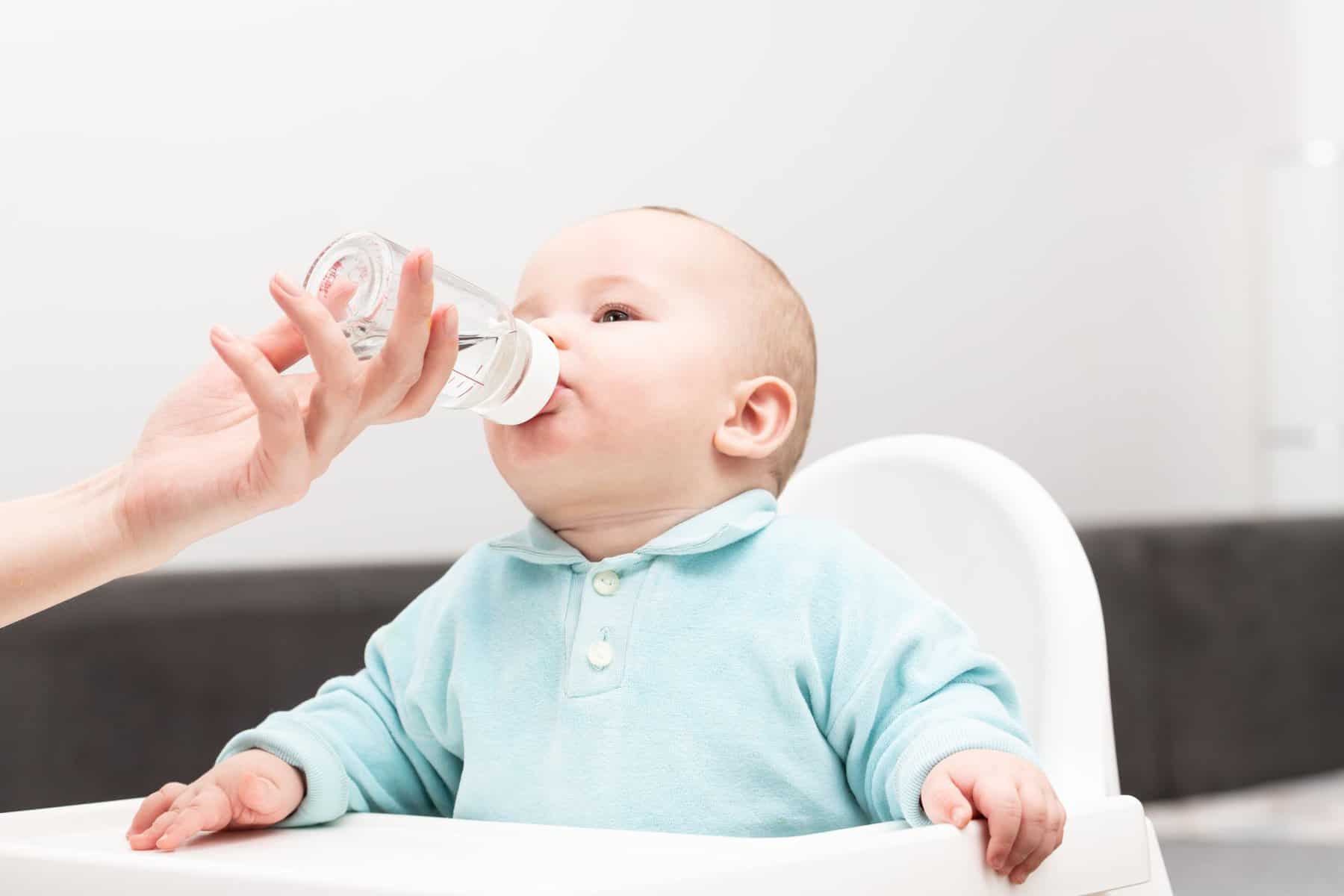
Parents would do well to avoid giving bottled water to their babies.
Why? For one, it’s not sterile. Bottled water endangers your baby’s health. Additionally, bottled water, as opposed to distilled and purified water, contains salt or sulfate. When it comes to risk, be especially mindful of bottled water labeled as ‘natural mineral water’.
As such, for babies under six months, make sure to boil bottled water and cool it. Or, instead, since babies can drink distilled water safely, use distilled water for your baby formula to avoid any risks altogether! You have enough on your plate to worry about.
Your baby formula provides all the minerals your baby needs.
However, in regards to water, make sure to avoid bottled water. There are many safer options out there for you to consider, ones that help you keep your baby perfectly healthy.
Besides, plastic water bottles contribute to global warming and pollution.
Generally, it’s recommended for babies under six moths to drink only breast milk or baby formula. It’s important that your provide your baby clean and safe water to drink. As such, purified water or distilled water makes for a better and overall healthier choice.
Distilled Water for Infants: Pros and Cons
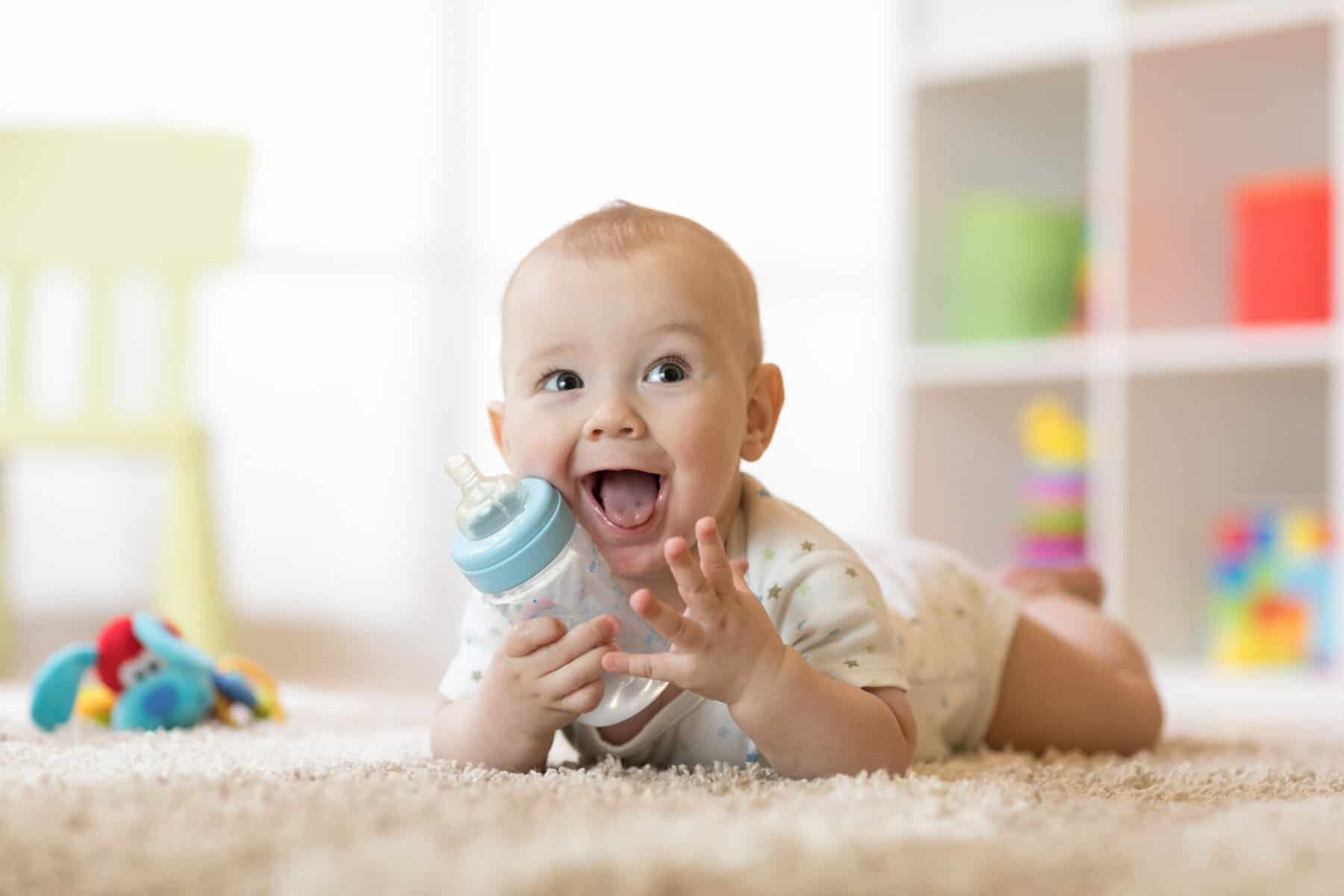
Now that we know that babies can safely drink distilled water and that it’s the best option for a baby formula, let’s take a moment to examine the pros and cons of distilled water.
Naturally, distilled water is free of contaminants and minerals. That in and of itself resembles the biggest benefit. Some babies have certain health conditions or health complications and, as such, need to drink completely safe and purified water.
On top of that, buying distilled water gives you peace of mind. It can be bought at any store. Just make sure that you read the labels. Additionally, you may try producing distilled water at home with a distillation unit, although that’s going to leave a hole in your wallet.
On the other side of the spectrum, the lack of minerals may raise some concerns. Your baby, after all, needs minerals for their health and development. Also, if consumed in large quantities, distilled water can impose some risks, as well. As always, apply moderation.
Some babies may react poorly to distilled water. Don’t be surprised if your baby dislikes the taste. Try it for yourself and you will discover that the taste of distilled water is somewhat flat. As such, it’s safe to assume that it won’t appeal to every baby.
Nevertheless, if you have any concerns, it’s best to talk to a healthcare professional. Your pediatrician is going to help you find the best and safest water for your baby.
What’s Safer? Distilled or Purified Water?
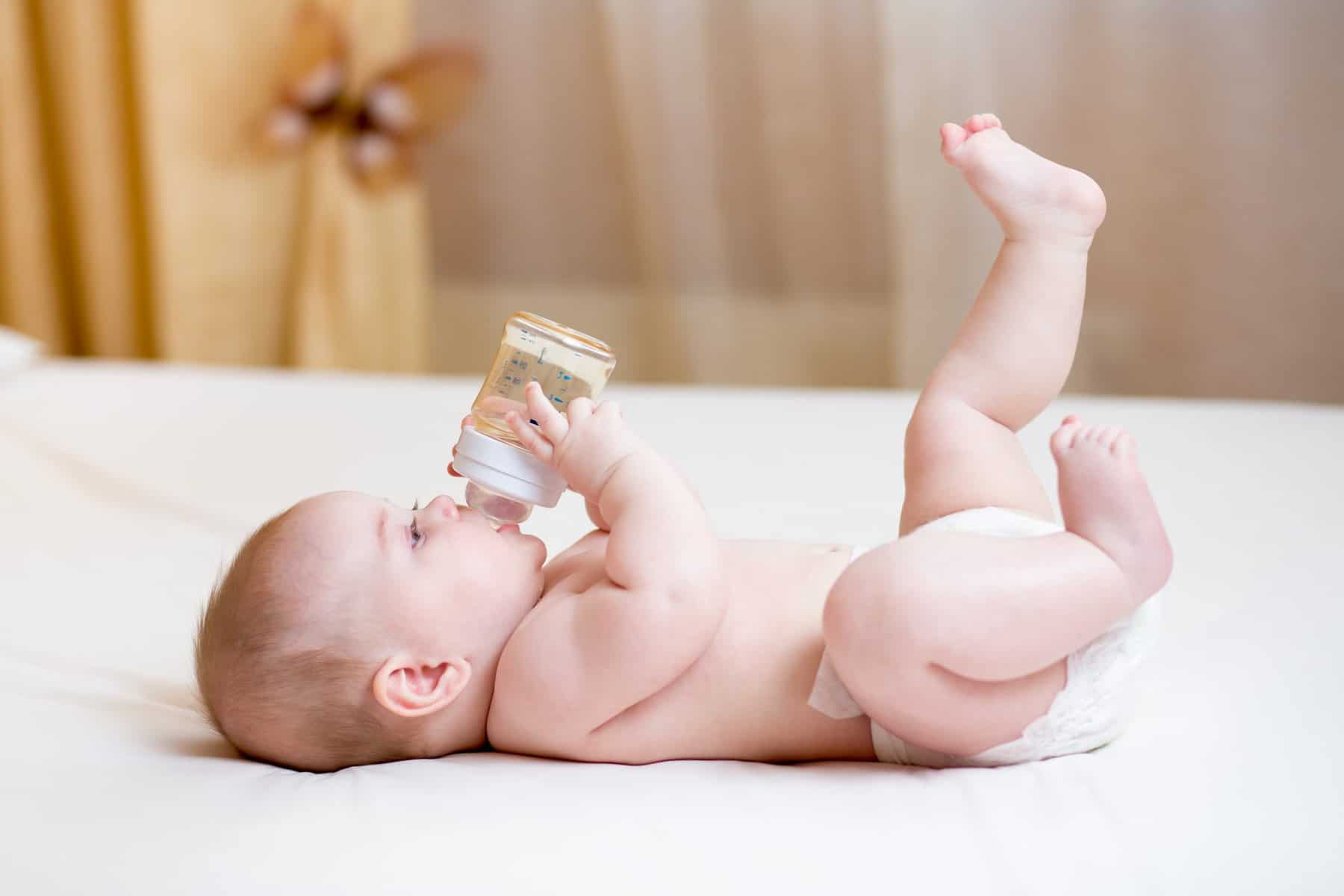
Both distilled and purified water are safe for your baby. So, you don’t have to worry much. The process itself is different, but distilled and purified water significantly reduce the risks of contamination and can be added to a baby formula. You don’t have to think much.
However, what’s the difference in the process itself?
Well, while distilled water is purified through the process of distillation, purified water can be produced in a variety of methods, such as deionization and filtration. Purified water, however, certainly eradicates contaminants, but it doesn’t destroy all minerals.
When buying bottled water, make sure to pay attention to labels. You want to make your purchase wisely, so be on the lookout for labels such as sterile and purified.
The most important thing you have to know is that both options are safe to use in a baby formula. However, if you have any doubts and concerns, it’s always the safest option to consult with a pediatrician, especially if your baby has a medical condition.
In Conclusion
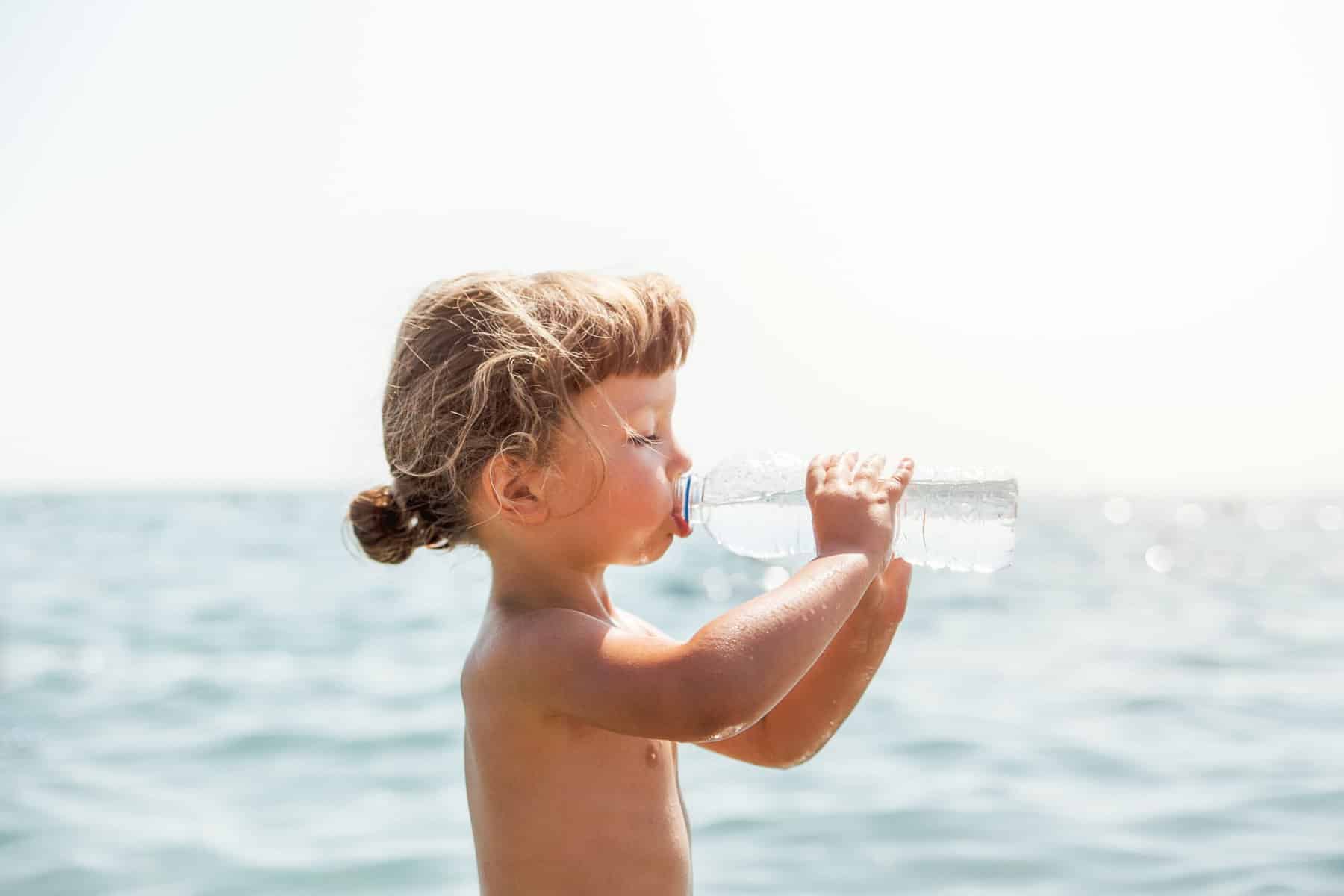
So, can babies safely drink distilled water?
Distilled water is a perfect option for a baby formula, certainly the safest. The process of distillation rids it of any contaminants and vitamins, but your baby’s getting all the good stuff they need from a baby formula, anyway, and that’s why distilled is preferred.
However, consulting with your pediatrician takes precedence.
Some babies need purified water due to allergies or, perhaps, a compromised immune system. For that reason alone, it’s always the best choice to consult a medical professional for guidance. Nevertheless, distilled water remains perfectly safe to use in a baby formula.
When your baby turns six months, you can start gradually increasing their water intake, aside from breastfeeding or a baby formula. Keep in mind that your baby needs minerals, because they’re essential for their development. Distilled water doesn’t have them.
As such, distilled water should not be your baby’s only source of water after six months.
Keep in mind that your baby shouldn’t drink distilled water unless you mix it into a baby formula. Otherwise, you risk the danger of dehydration and other potential health issues.
If you’re unsure if it’s safe for your baby, seek professional guidance.
A pediatrician will help you make the right choice for your baby.

Mother of three and a primary school teacher. I’ve always loved being around children and helping them, so I chose my path as a teacher. It is sometimes hectic with three children, but I am 100 percent into it and wouldn’t change it for anything in the world.
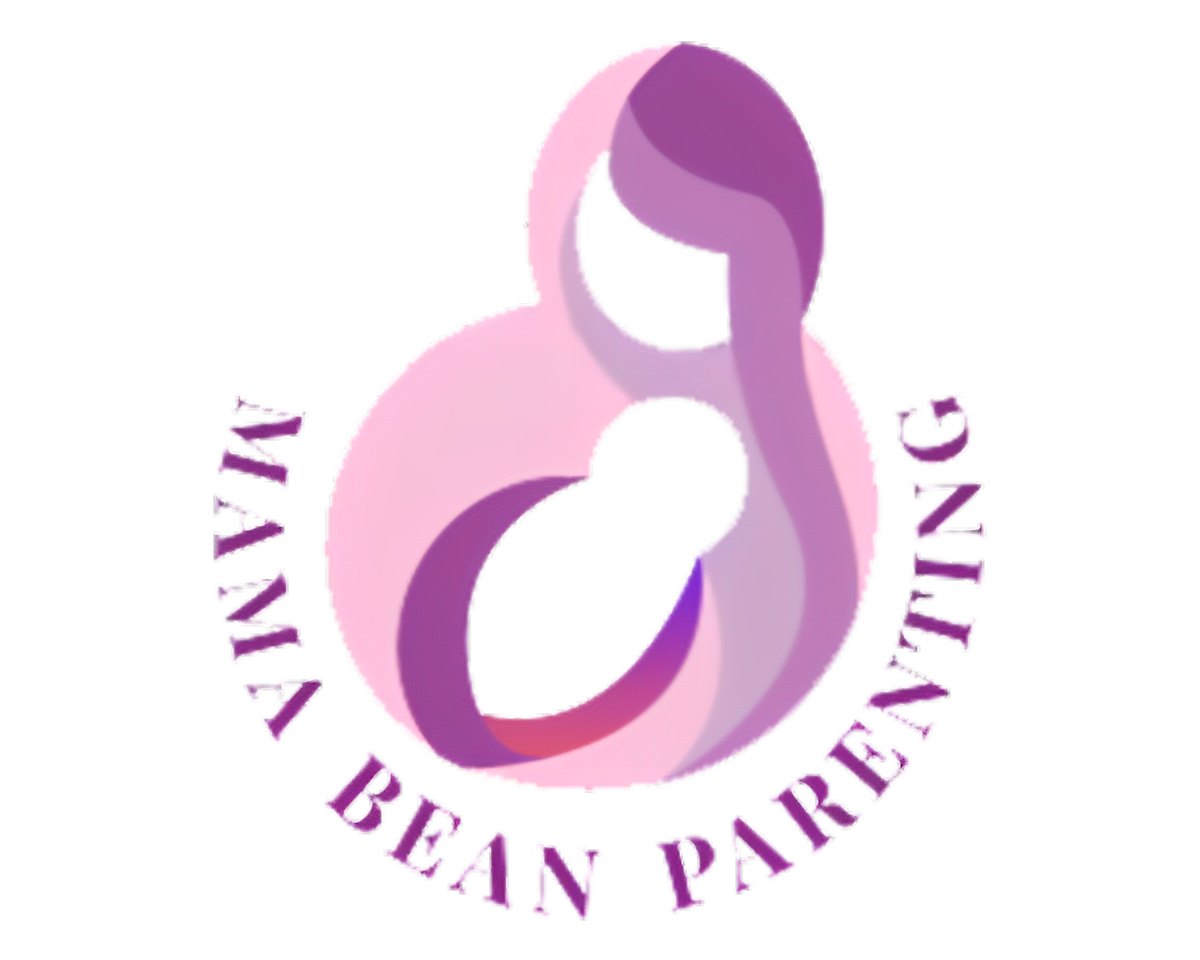
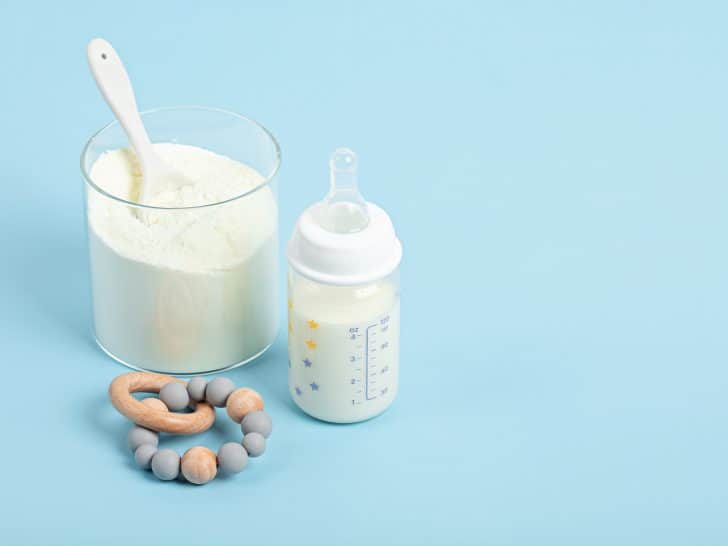
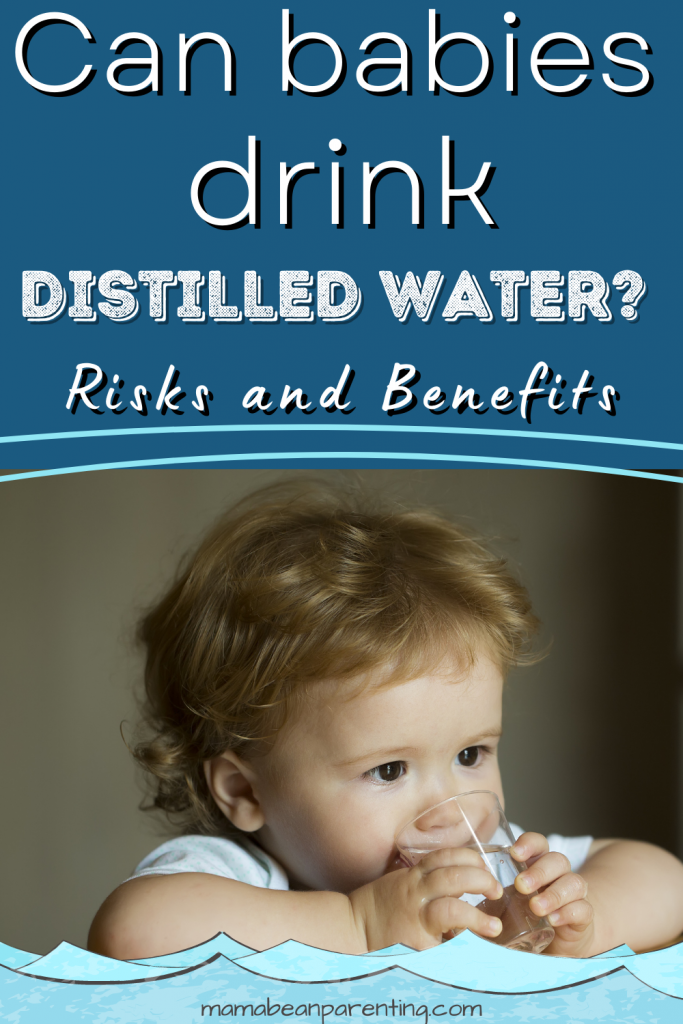
Iscriviti
Friday 10th of May 2024
Your article helped me a lot, is there any more related content? Thanks!
binance kód
Monday 25th of December 2023
Your article helped me a lot, is there any more related content? Thanks! https://www.binance.com/cs/register?ref=B4EPR6J0
I Accidentally Gave My Newborn Water - Now What? • Mama Bean Parenting
Thursday 13th of April 2023
[…] you want to know more about different types of water, you should look into distilled water or alkaline water for […]
Can Babies Drink Distilled Water? • Synovis Life
Monday 23rd of January 2023
[…] your baby has a health condition that makes them sensitive to the amount of minerals they consume, then distilled water is an ideal […]
Alkaline Water for Babies: Yes or no? • Mama Bean Parenting
Wednesday 18th of January 2023
[…] -is safe for them to drink without needing any extra filtering systems installed on your faucet or sink, like with other types of water, such as distilled. […]